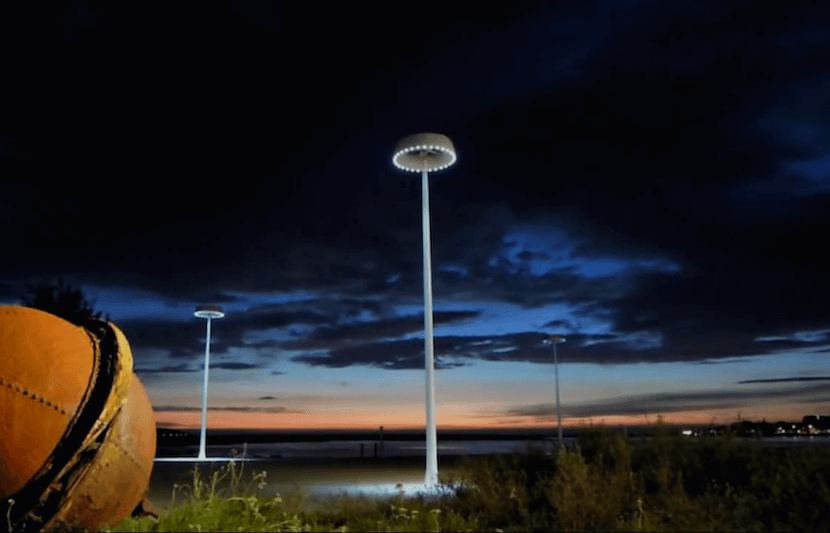Recent steps taken by Rhode Island College (RIC) confirm its commitment to sustainability. In addition to converting all its dormitories to LED lighting, which will save 517,308 kilowatt hours, RIC has installed several street lamps topped with solar panels and a wind turbine. During the day, the lamps convert sunlight and wind into electricity, which is then stored in the individual lamps’ batteries. During the night, the lamps illuminate the campus, powered entirely by the energy they stored up during the day.
The lights are manufactured by OMNI LED. “The OMNI LED system is a perfect example of Rhode Island College’s commitment to sustainability, using new and groundbreaking technology in a very practical way,” RIC Sustainability Coordinator James C. Murphy told The University Network (TUN).

In fact, according to Costa Electronics, the company that has been monitoring the performance of the new lamps, the fixtures are producing 20% more electricity than is necessary for them to operate during the night. “Going forward, it is the goal of the college to capture that 20% and feed it into the grid,” Murphy told TUN.
The college hopes to use this technology not only as an educational tool, but also as an example to other schools, businesses, and municipalities. “Our accomplishment and success puts Rhode Island College in a leadership role with sustainability,” said Murphy.
RIC is planning to make the most of the technology by offering a brand-new course this coming fall centered on these new fixtures. The course — LEED (Leadership in Energy and Environmental Design) Lab — will be available to both business students and environmental science students.
The LEED Lab curriculum is designed by the U.S. Green Building Council (USGBC), which is used by the RIC’s School of Business. “LEED Lab, as defined by the USGBC, is a multidisciplinary immersion course that uses the built environment to educate and prepare students to become green building leaders and sustainability-focused citizens,” Murphy told TUN.
He went on to explain: “In the course, students assess the performance of existing facilities on campus and choose one building where they will facilitate the LEED for the Building Operations and Maintenance (LEED O+M) process with the goal of certifying the facility. At the close of the semester, the students will be prepared to sit for the LEED AP O+M professional credential exam. LEED Lab meets the needs of the building industry by equipping students with the skills, knowledge and expertise required to be effective communicators, project managers, critical thinkers, problem solvers, engaged leaders, and team players.”
RIC was just selected as one of the nine postsecondary recipients of the 2017 Green Ribbon School Award from the U.S. Department of Education. This award commemorates not only the project mentioned in this article, but the school-wide commitment to environmental conservation and sustainable development.



